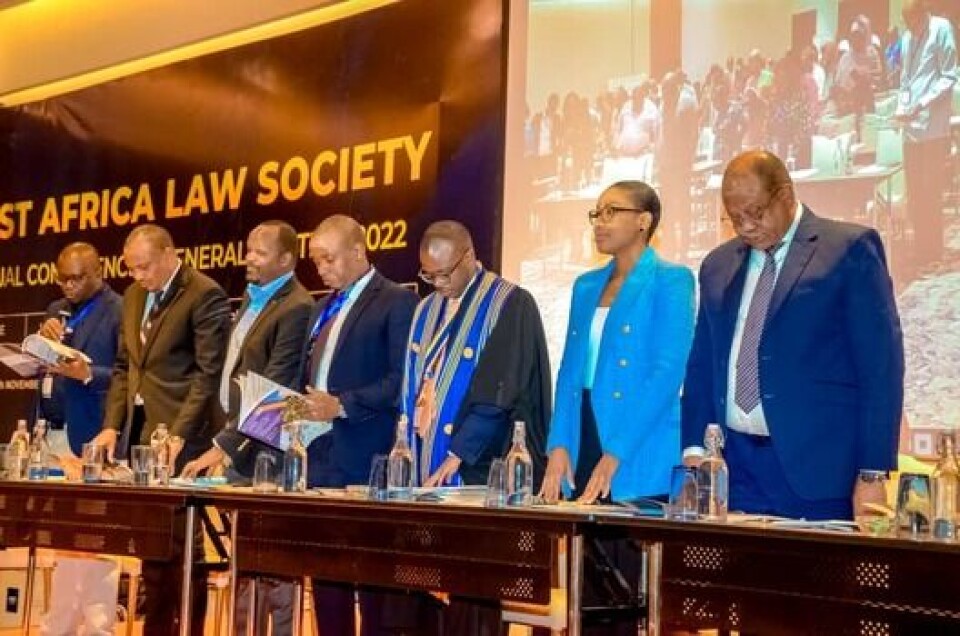Copyright : Re-publication of this article is authorised only in the following circumstances; the writer and Africa Legal are both recognised as the author and the website address www.africa-legal.com and original article link are back linked. Re-publication without both must be preauthorised by contacting editor@africa-legal.com
Intra-African collaboration missing in ADR

The practice of alternative dispute resolution (ADR) is gaining attention in Africa, but it is not without its challenges. Alfred Olufemi reports on the discussion on this issue at the EALS conference.
One of the topics examined at the 27th annual conference of the East Africa Law Society (EALS), a regional bar association with over 28 000 lawyers, is the practice of alternative dispute resolution on the African continent.
In July 2022 outgoing EALS President, Bernard Oundo, appointed an ADR committee for the regional bar, saying, “Alternative dispute resolution is the future. We must, as a society, take it very seriously and build the capacity of our members to handle arbitration matters.”
It was thus not a coincidence that the three-day conference featured an ADR panel session. The panel of lawyers and arbitrators focused on “Harnessing the Power of ADR in Africa: Opportunities and Challenges”.
During the panel session, the moderator, Florida Kabasinga, a senior partner at Certa Law and chairperson of EALS’ ADR committee, asked what is stopping the return of the traditional justice system, which is premised on ADR practice.
In her presentation, Christine Birabwa, managing partner at Praxis Conflict Centre, noted that the concept of ADR is not novel to African societies and that Africans were resolving conflicts long before colonialism.
“Dispute resolution mechanisms were aimed at reconciliation, timely resolution of disputes and reintegration which are the primary aims of ADR,” she said, giving the example of the Buganda Kingdom justice system in Uganda. “Today ADR seems to be alien because we seem to think Africa is adopting a novel justice mechanism from the western world.”
She further explained that there are existing policy frameworks and promotion of ADR in Africa which can be harnessed.
“Article 159(2)(c) of the Constitution of Kenya 2010 allows for judicial bodies to be guided by alternative forms of dispute resolution including reconciliation, mediation, arbitration and traditional dispute resolution mechanisms if they conform to written law. Article 126(2)(d) of the Constitution of Uganda allows for promotion of reconciliation between parties in adjudication of both civil and criminal cases.
“Each of us here can cite a matter in which ADR has been employed successfully. ADR is not new to Africa – ADR processes exist in our homes, institutions and communities, for example, negotiation, mediation,” she reiterated.
Speaking on challenges facing the implementation of ADR, Birabwa explained that there is a deficit of commercial disputes centres. “Cairo Regional Centre for International Commercial Arbitration (CRCICA) established in 1979 and the Arbitration Foundation of Southern Africa (AFSA). These have capacity to handle international commercial disputes already. What we need is more.”
Apart from Africa having insufficient ADR institutions and expertise, she decried the lack of intra-African collaboration. “Even with some arbitral centres on the continent, African parties continue to arbitrate their disputes before non-African arbitral centres.”
In her recommendations, Birabwa suggested the establishment of international standard ADR centres, and continental and regional ADR centres with support from the AU and regional economic communities. She also recommended increased support of ADR processes by courts of law and a willingness of courts to refer parties to ADR processes.
To join Africa Legal's mailing list please click here
